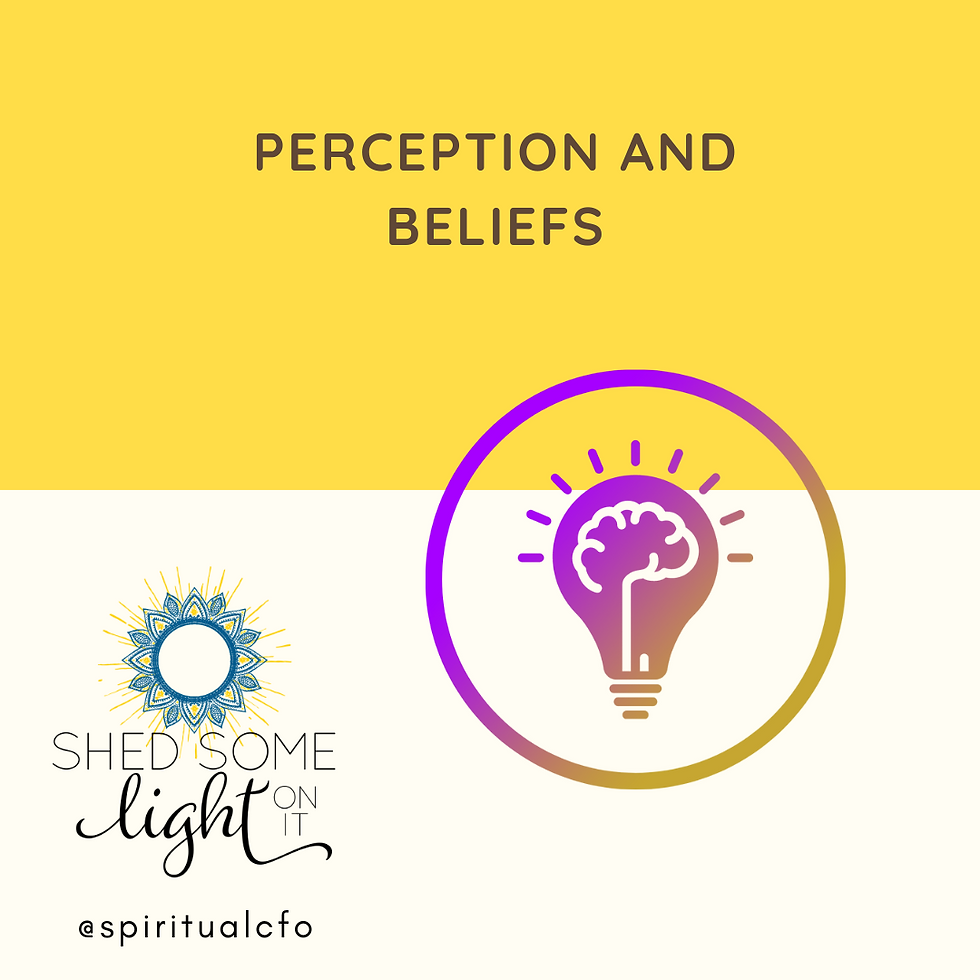Perceptions and Beliefs
- Robin Wilt

- Dec 30, 2024
- 3 min read
Have you ever misjudged someone’s actions, only to realize later that their intentions weren’t what you assumed? It’s a reminder of how much our perceptions color our reality.
The other day, I was at a grocery store known for charging a quarter to use a cart. As I left, I noticed a woman leaving her cart in the parking lot. She seemed calm, so I assumed she was leaving it for someone else to use, a common practice at this store.
Just then, a man pulling into the lot grew agitated. “Why would you leave the cart there? It’s going to hit someone’s car. Be considerate!” he snapped.
Surprised but composed, she replied, “I was leaving it here for someone else to use, just like someone did for me.”
This small interaction got me thinking: how often do we assume the worst about others’ intentions, and how does that shape our reactions? So often, we think others are being inconsiderate, selfish, or rude, but our assumptions often say more about us than about them. If we believe that people are generally self-centered, we’re likely to interpret actions through that lens. On the other hand, assuming the best in others opens the door to seeing their actions in a more positive light.
The cart story is a simple example but think about how unchecked perceptions might affect larger issues in our lives. This idea has been especially relevant for me lately as I’ve been noticing and examining old beliefs about people and their intentions toward me. These patterns, often ingrained in childhood, have been popping up, giving me the opportunity to reevaluate and shift them.
At first, noticing these patterns can be uncomfortable. But it’s actually a great sign. We can’t change anything until we become aware of it. Once we see the patterns, we can start asking where they came from, how they’ve been reinforced over time, and most importantly, how we’d like to replace them with new, more supportive beliefs.
Steps to Shift Your Perceptions
Step 1: Notice the Patterns
Begin by identifying an area of your life where your beliefs feel limiting. Maybe it’s work, family, romantic connections, or finances. Write down recurring thoughts or assumptions you have about these topics. For example, do you think people at work are out to get you? Do you believe romantic partners will inevitably let you down?
Step 2: Reflect on Their Origins
Ask yourself where these beliefs came from. Were they protective mechanisms during a challenging time? For instance, if you were in an environment where you constantly had to be on guard, it might have made sense to think everyone was out to get you. But if that’s no longer your reality, carrying those beliefs might now hold you back.
Step 3: Reframe and Update
Once you’ve identified outdated beliefs, consider how you’d like to see the world now. Ask yourself: How would I think if I believed the best in people, situations, or myself? For example, if you’ve healed from a difficult relationship, it’s safe to start trusting again and expecting kindness rather than betrayal. Replace those old beliefs with ones that better reflect your current reality.
Empower Yourself Through Awareness
Changing the way we perceive the world isn’t easy, but it’s transformative. Each time you choose curiosity over judgment, you rewrite your story. And that’s where true growth begins.
So, next time you find yourself assuming the worst about someone, pause. Consider what might change if you chose to see their actions through a different lens. You might be surprised at the peace and connection that come from assuming the best. Try to remember that the world is actually a loving place filled with so many opportunities to expand and enjoy life. Focus on that and it will continue to expand over time.
Love ya mucho! Robin




Comentários